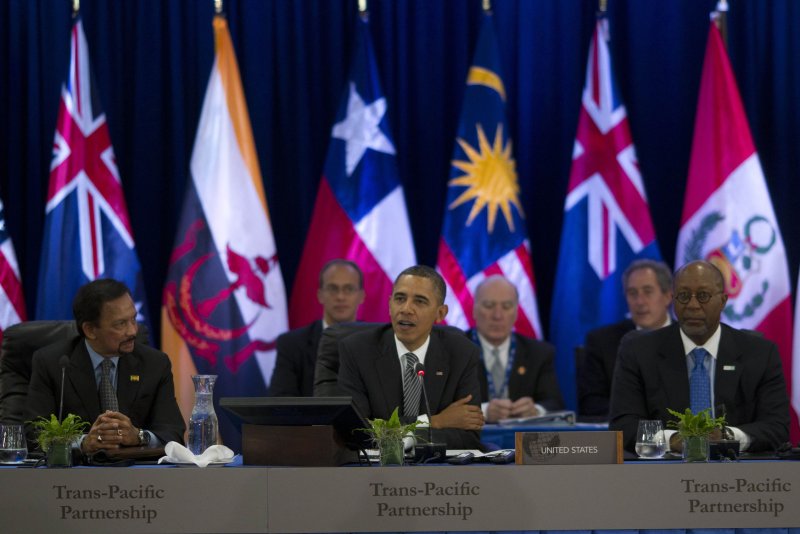ATLANTA, Oct. 5 (UPI) -- The United States, Japan and 10 other Pacific Rim nations agreed Monday to the Trans-Pacific Partnership, the largest regional free-trade agreement in history.
About 40 percent of the global economy could be tied together, potentially setting a precedent for worldwide commerce and worker standards, The New York Times reported. The Trans-Pacific Partnership, also known as TPP, will need to be approved in the United States by Congress.















